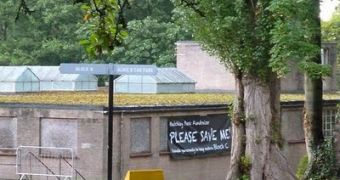Google has announced that it is working on restoring at least part of Bletchley Park, the location of the main British code-breaking facility during World War II which was responsible for decoding German messages encoded with the famous Enigma and was home to the first programmable, electronic, digital computer.
Today, many of the buildings fell into disrepair and Google is working to restore Block C which, during the war, housed the punched card index, which Google is labeling as the 'search engine' of the facility.
"We’ve joined forces with the Bletchley Park Trust to help raise funds to rebuild Block C, the original wartime building that once housed the vast punched card index," Google wrote.
"Bletchley Park played a pivotal role in computing history. For decades the extraordinary achievements of its veterans were hidden by order of the UK’s Official Secrets Act," Google said.
"It was not until the 1980s that the full secret of Colossus — the world’s first electronic programmable computer—was revealed," it added.
Bletchley Park was home of many innovations that would shape not only the future of cryptography and code-breaking, but also of computing.
The Colossus would help code-breakers by helping find possible keys for messages encrypted by the German Lorenz SZ40/42 machine.
However, secrecy about the project meant that the machines as well as the plans were destroyed after the war. It was only in 2007 that the first functional Colossus replica was built.
"Today, Block C is derelict. We hope to help restore it to serve as a visitor and learning centre for both Bletchley Park and the UK’s National Museum of Computing," Google said.
Efforts to save the building started out modestly, with £10,000 raised at a garden party on the grounds sponsored by Google. But it's going to take a lot more than that and Google is asking people to donate via the Bletchley Park website.

 14 DAY TRIAL //
14 DAY TRIAL //